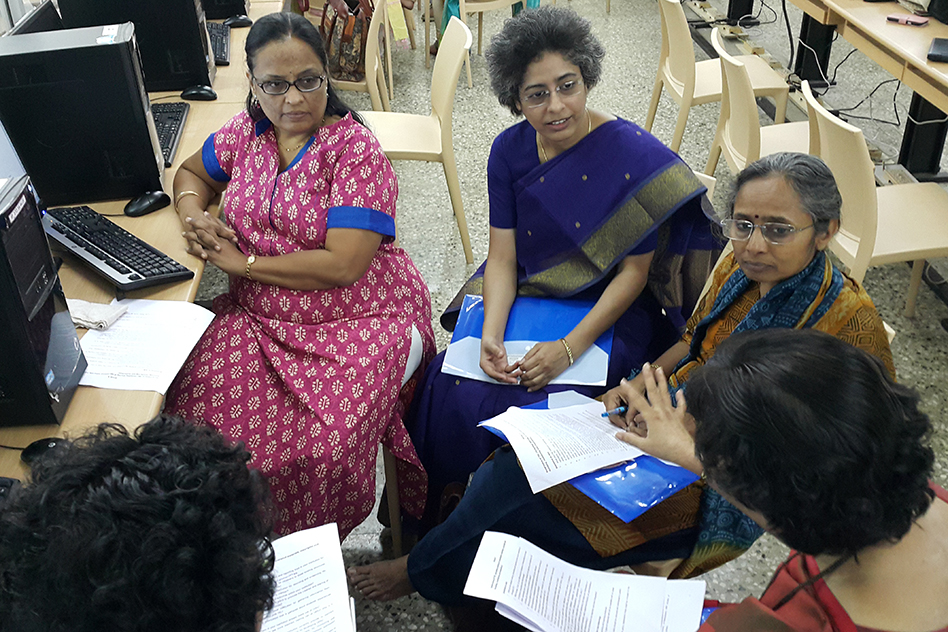
Shreemati Nathibai Damodar Thackersey (SNDT) Women’s University in Mumbai, India, recently developed a Technology-Enabled Learning (TEL) policy, with the support of the Commonwealth of Learning (COL).
The collaboration started in 2015 when, then-vice-chancellor of SNDT Women’s University, Professor Vasudha Kamat led the push to adopt a TEL policy. COL assisted with a baseline study of faculty and learner access to technology, as well as a review of the institutional infrastructure for supporting teaching and learning. The study revealed high access to technology, particularly mobile devices amongst learners and teachers. Students in particular were excited to learn about the possibility of greater technology use, while faculty, although concerned about capacity, were enthusiastic to adopt ICT for teaching.
The infrastructure review revealed that some of the aspects of a technology-enabled learning system, policies and infrastructure were already in place, but there was a need to strengthen the system and scale up the TEL implementation. This also called for the need to have a policy approved by the highest governing body of the University.
A draft policy was developed in a consultation workshop, held from 25-26 April 2016, with the university faculty. The policy, after review by experts and the university, was adopted in May 2016. Professor Kamat said “while SNDT has been implementing TEL for the last five years, a policy would institutionalise the process and give continuity to the activities that are in progress”.
One of the goals of SNDT Women’s University is to provide access to higher education for women and to offer a wide range of professional and vocational courses for women, with an aim to improve their socio-economic status. The policy enables the university to commit and put in place appropriate technologies and resources to assist students and teachers in creating an environment of excellence in learning and teaching. With this policy, SNDT Women’s University has also committed to share teaching and learning resources using the CC BY-SA licence through an institutional repository. The university is in the process of developing institutional plans for further scaling up the use of ICT in teaching and learning.


